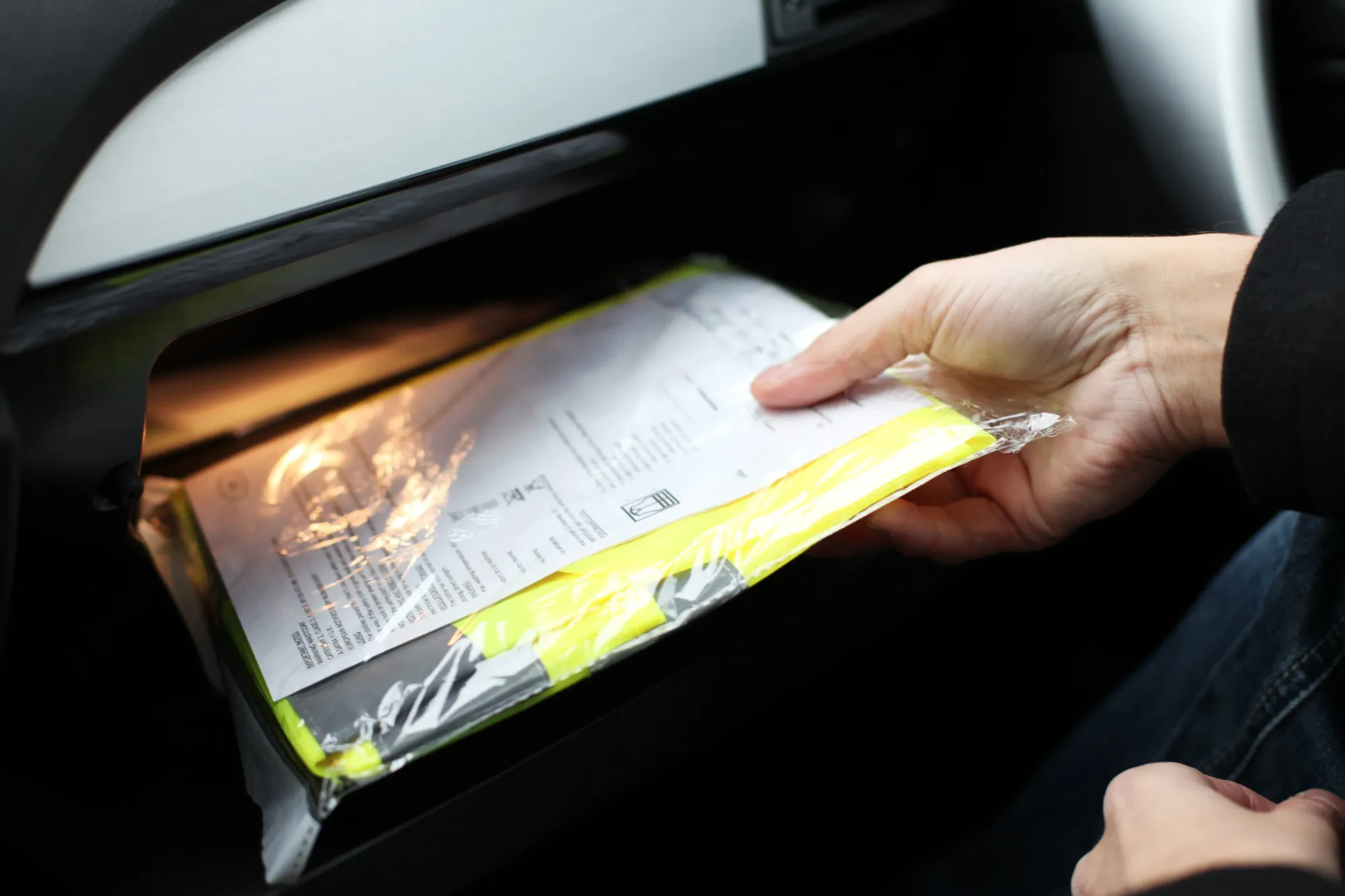When driving a car in the United Kingdom, it is important that you can prove that you and your vehicle comply with legal requirements.
Although it is not always mandatory to have certain documents in the car, you must be able to show them when requested by the authorities.
In this article, we explain which documents are most common, what to do if you lose them, and whether you can face penalties if you do not carry them with you.
What documentation is mandatory?
In the United Kingdom, there is no rule requiring certain documents to always be physically present in the vehicle.
However, there are documents that you must have or be able to present when requested:
- Valid driving licence: You must have a licence that allows you to drive the type of vehicle you are driving.
- Valid motor insurance: It is compulsory for the vehicle to be insured (at least with third-party insurance). If asked, you must be able to provide proof of insurance.
- MOT certificate (if applicable): If the car is old enough to require an annual MOT test, you must have a valid certificate. If requested, you can present the certificate or a copy.
- Vehicle registration document (V5C, “logbook”): This document certifies who is the “registered keeper” (the person responsible for registering the vehicle). It is not always compulsory to carry it in the car, but it is essential to keep it up to date and available when necessary.
- Certificate of Conformity (COC): This document certifies that the vehicle complies with European safety and emissions regulations. It is essential for importing, exporting and registering the vehicle in Europe. The authorities may ask you for it to check technical details about the vehicle, although it is not actually compulsory to carry it.
In addition, there are other documents that are not required to be in the car, but it is practical to have them handy or accessible:
- Car service history.
- Breakdown cover documentation.
- Vehicle manual (owner's manual).
There are also recommendations on what NOT to leave in the car, for security or risk of information theft:
- It is not advisable to keep the original V5C in the vehicle unless strictly necessary.
- It is also not a good idea to leave personal documents such as your passport, bank statements or private correspondence.
In summary: you must have your licence, insurance, MOT (where applicable) and vehicle registration in order. However, you are not legally required to carry them in your car at all times.
What happens if I lose them?
- Replacement of the affected document
- You can request a duplicate V5C (vehicle registration) by contacting the DVLA (Driver and Vehicle Licensing Agency).
- If your licence is lost or stolen, you can apply for a replacement or a new licence.
- In the case of the MOT certificate, you can obtain a copy or print it out if you keep the data online (most MOT tests are recorded in the DVLA database).
- Delays or complications
Until you obtain the duplicate, you may encounter obstacles:
- If you are asked to show a document during a police check, you may be allowed to present it later (e.g. at the police station) if you can prove that you have started the process.
- When selling your car, the lack of certain documents may hinder the transaction or reduce the resale value.
- Costs
There may be a fee for issuing duplicates (e.g. to replace the V5C).
- Updating your details
If you change your address or have any personal changes, make sure that your official documents (licence, car registration) reflect these changes to avoid problems in the future.
Can I be fined if I don't carry them?
If any of these documents are lost, damaged or stolen, it is advisable to act quickly to avoid complications:
If a police officer asks you for a document that you are legally required to have (e.g. insurance or MOT certificate) and you are unable to produce it, you could face penalties.
Let's look at some possible scenarios:
- If you drive without valid insurance, the penalty is severe. Financial fines, points on your licence and even immobilisation of the vehicle.
- If you are asked for your MOT certificate (when this is compulsory) and you cannot show it or present it within a stipulated period, you may be penalised.
- If you cannot show your driving licence when asked, you may be required to present it at the police station in the following days.
However, as it is not always compulsory to carry all documents physically in the car, the fine will depend on the document required and whether the driver can prove that they have the document in order even if they did not have it at the time.
